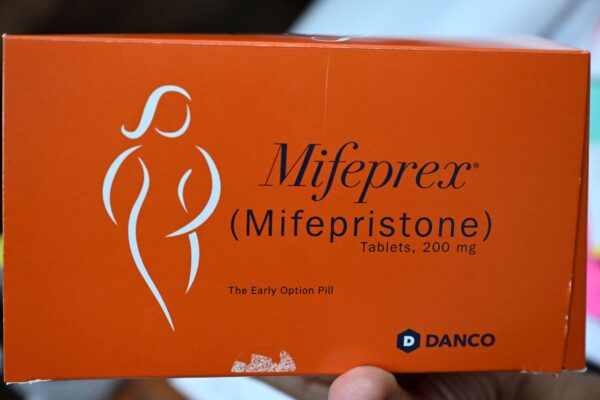


California Gov. Gavin Newsom announced Wednesday that California won’t renew a $54 million contract with Walgreens after the pharmacy chain decided not to distribute abortion pills in 20 U.S. states, where they may face legal action.
Newsom signaled the move on Twitter earlier in the week, stating, “We’re done.”
“California will not stand by as corporations cave to extremists and cut off critical access to reproductive care and freedom,” Newsom said in a statement on Wednesday. “California is on track to be the fourth largest economy in the world and we will leverage our market power to defend the right to choose.”
The decision impacts a $54 million contract and will force the California Department of General Services (DGS) to look for other options to provide specialty prescription drugs, mainly used by the California Department of Corrections and Rehabilitation and its correctional health care system.
Newsom’s office confirmed that the decision was made after reviewing all state contracts with Walgreens over the past four days.
“Today, at Governor Newsom’s direction, DGS gave formal notice that it is withdrawing a planned renewal of that agreement set to take effect on May 1, 2023, and instead will explore other options for furnishing the same services,” Newsom’s office stated.
Newsom’s response on Monday came after Walgreens issued a statement that same day to clarify its stance, noting that it plans to dispense mifepristone only in jurisdictions where it is “legally permissible to do so.”
“We want to be very clear about what our position has always been: Walgreens plans to dispense Mifepristone in any jurisdiction where it is legally permissible to do so,” the company stated.
Currently, Walgreens does not sell mifepristone anywhere as it is still seeking FDA certification.
“Once we are certified by the FDA, we will dispense this medication consistent with federal and state laws,” the company stated. “Providing legally approved medications to patients is what pharmacies do, and is rooted in our commitment to the communities in which we operate.”
Gray, the pharmacy’s chief legal officer, had previously said Walgreens hadn’t made any representations about using its mail order pharmacy business to dispense mifepristone.
“Walgreens is not currently dispensing Mifepristone in any of its locations,” she wrote in a letter responding to 20 Republican state attorneys general, who wrote to Walgreens to remind the company of federal and state law (pdf).
On Feb. 1, a letter was sent to Gray by Missouri Attorney General Andrew Bailey and 19 other state chief legal officers, after Walgreens and other pharmacies announced in January that they would apply for certification from the Food and Drug Administration (FDA) to dispense mifepristone in their physical stores and through mail services.
The letter outlined their views on the current legal situation surrounding abortions and reminded Walgreens that federal law “expressly prohibits using the mail to send or receive any drug” that will “be used or applied for producing abortion” (pdf).
The attorneys general that signed the letter to Walgreens were from Alabama, Alaska, Arkansas, Florida, Georgia, Indiana, Iowa, Kentucky, Louisiana, Mississippi, Montana, North Dakota, Ohio, Oklahoma, South Carolina, South Dakota, Texas, Utah, and West Virginia.
The FDA had recently introduced a regulatory change allowing retail pharmacies to distribute the drug to individuals with a prescription, as long as they were certified under specific safety regulations.
Prior to the regulatory change, only doctors and mail order pharmacies or clinics were allowed to provide the pill.
Gray responded that while Walgreens expressed its intent to become certified with the FDA, the company would “do so consistent with all applicable laws and as a result would not be able to dispense Mifepristone in all locations” (pdf).
Mifepristone works by blocking the hormone progesterone, which is needed for a pregnancy to continue. When used together with another medicine called misoprostol, it ends a pregnancy up to 10 weeks after conception.
More than 50 percent of pregnancy terminations in the United States are by medical abortions, according to the Guttmacher Institute, a pro-abortion research group.
The use of medical abortions nationwide is being challenged in a lawsuit before U.S. District Judge Matthew Kacsmaryk. That lawsuit, filed in November 2022, argues that the FDA did not properly approve mifepristone for terminating pregnancies.
The Epoch Times contacted Walgreens for comment.


